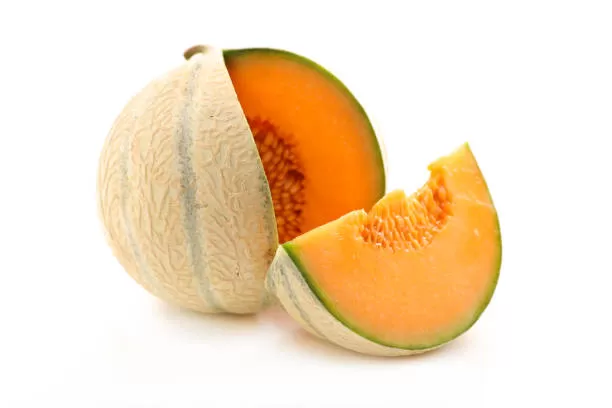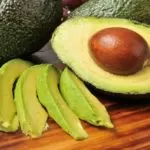Amazing Health Benefits of Eating Melon
In order to get the benefits of eating melon, it is best eaten before or between meals as it may dilute gastric juices thereby puddles the stomach which may cause disturbances during digestion.
As a food for the urinary tract, it’s one of the sources of living water which offers so many benefits such as being effective in treating urinary conditions and equally having added advantage of its richness in beta-carotene content.
Juicy melon is capable of quenching the thirst of the hot months of summer than any ice cream or soft drink. According to pulse.ng, melon has some anti-inflammatory properties.

Other names: Muskmelon, Sweet melon
French: Melon
Spanish: Melón
German: Zuckermelone
The melon plant (‘Cucumis melo’ L.) is of the botanical family Cucurbitaceae and its cultivated in dry and sunny areas.
Melon Composition
The following nutritional value is based on per 100 grams of raw edible portion
Energy = 26.0 kcal = 110 kj
Carbohydrates = 5.40 g
Protein = 0.900 g
Fiber = 0.800 g
Vitamin A = 3.00 µg RE
Vitamin B1 = 0.060 mg
Vitamin B2 = 0.020 mg
Niacin = 0.400 mg NE
Vitamin B6 = 0.120 mg
Folate = 17.0 µg
Vitamin B12 = ___
Vitamin C = 16.0 mg
Vitamin E = 0.150 mg α-TE
Calcium = 5.00 mg
Phosphorus = 7.00 mg
Magnesium = 8.00 mg
Potassium = 210 mg
Iron = 0.400 mg
Zinc = 0.160 mg
Total Fat = 0.100 g
Saturated Fat = 0.025 g
Sodium = 12.0 mg
Cholesterol = ___
This is the % daily value provided by 100 grams of melon
Percentage Composition
Carbohydrates = 5.40%
Fiber = 0.800%
Minerals = 0.800%
Fat = 0.100%
Protein = 0.900%
Water = 92.0%
Properties of Melon
The water content of melon ranges from 90% to 95% and this depends on the variety. The water we get from melons are biological water which is not passive but a living water that’s always in contact with vegetable cells protoplasm.
Again, the biological water has been involved in millions of chemical reactions which take place within living plant cells.

One of the benefits of eating melon is the help it offers to the kidney as the plant serum found in water contained in them.
Melons hold less sugar, about (5.4%) than other fruits and its fat content is somewhat negligible (0.1%). Melons contain some respectable amount of proteins (0.9%).
When we talk about the benefits of eating melon, we should not forget that the melons contain a well balanced supply of vitamins and minerals.
Some of the vitamins in abundance are vitamins B1, B2, folates and vitamin C. Other vitamins are in small amounts while vitamin B12 is absent.
All mineral nutrients are present in melons and the notable ones are potassium, magnesium and iron. About 2.5 kg of melon contains or makes available the daily need of iron for an adult male which is about 10 mg and above half of the magnesium required daily which is about 350 mg.
YOU MAY LIKE:Benefits of Eggplant
Indications regarding Benefits of Eating Melon
There are various properties of melons that enable them offer numerous health benefits. The properties include:
- Diuretic property
- Laxative
- Alkalizing
- Hydrating property
- Remineralizing property.
The properties above and coupled with its nutritional value present us with so many benefits of eating melon. Below are some of the important indications.
- Dehydration
- Urinary conditions
- Excessive uric acid
- Chronic constipation
Dehydration
Dehydration which may be accompanied by loss of mineral, which also happens in cases of diarrhea, fever crises or excessive perspiration, will be improved after consuming melon.
Although we know that melons have laxative property but they may be used in cases of diarrhea which may have been resulted by gastroenteritis.
Urinary conditions
Another one among the benefits of eating melon is its supply of mineral salts and vitamins to the blood.
This function promotes the filtering capacity of the kidneys. After consuming melons, it helps the kidney to effectively remove toxins and waste materials produced through the processes of metabolism.
Studies have it that the dissolved minerals and the living water in melons are major contributors of the above stated benefits.
As stated earlier regarding the benefits of eating melon, it can benefit individuals who want to improve renal function and also those suffering from the following conditions.
- Kidney stones and granules
- Early stage of kidney failure
- Urinary infections
Melons benefit those with early stage kidney failure whose main symptoms are scanty urine retention and fluid retention. It is also good for those suffering from kidney stones and granules especially the ones that are uric in composition.
As one of the benefits of eating melon, their alkalizing ability helps increase the acidic salt solubility which make up uric calculi. This will promote their dissolution and elimination.
Melons are not urinary antiseptics, however, their alkalizing action or effect in the urine helps prevent the proliferation of the coliform bacilli which bring about urinary infections thereby requiring acidic medium to grow.
Excessive Uric acid which may be caused as a result of urate arthritis and gout may improve following regular consumption of melons.
Benefits of eating melon can be seen in conditions such as chronic constipation. The condition which may have resulted due to intestinal atony will improve following melon consumption.
SEE ALSO:How To Reduce Weight Home Remedies
Cantaloupe
The cantaloupe is a variety of melon loved for its characteristics aroma and flavor. It holds about 90% water and more of vitamin C. However, it contains less iron than the regular melon.
The cantaloupe contains more beta-carotene than the following fruits
- Mangoes
- Grapefruit
- Apricots
- Oranges
- Peaches etc.

The beta-carotene is converted to vitamin A and also acts as active antioxidant which helps to fight against free radicals that fight the cells in the body.
Therefore, cantaloupe as a variety of melon also shows many benefits of eating melon because the vitamin A derived from eating cantaloupe is important to the eye health, a healthy immune system and also healthy red blood cells.
Again, vitamin C is another nutrient contained in melon which quite is effective against ailments such as asthma, diabetes and cancer.
Preparation and Use
- Melons can be used in preparing variety of confiture and jams
- Fresh: The best way to consume melons is to eat them fresh and as such not recommended as dessert because the liquid they contain is somewhat large and will interfere with digestion.
As for cantaloupe, the following are a few instances on how to prepare and use them
- Cantaloupe salad: Combine it with mozzarella, basil, red wine vinegar, onions and also olives
- Roasted cantaloupe: The method of preparation and use brings it natural sweetness
- Cantaloupe smoothie: Can be made from Greek yogurt, cantaloupe and with the use of natural sweetener. It is a nutritious drink that can make a great breakfast or even a snack
- Cantaloupe sorbet: Four ingredients are needed in order to make a frosty treat as this; get cantaloupe, honey, lemon and water.

A graduate of Computer Science and Information Management Technology. Diploma – Caregiving, Certificates – Dementia and Diabetes Awareness and Management. A researcher, blogger, songwriter, singer and acoustic guitarist. Born in an environment where natural talents such as healing are imparted at our natural birth. This natural talents of healing is the result of our genetic inheritance and the training from family environment.























